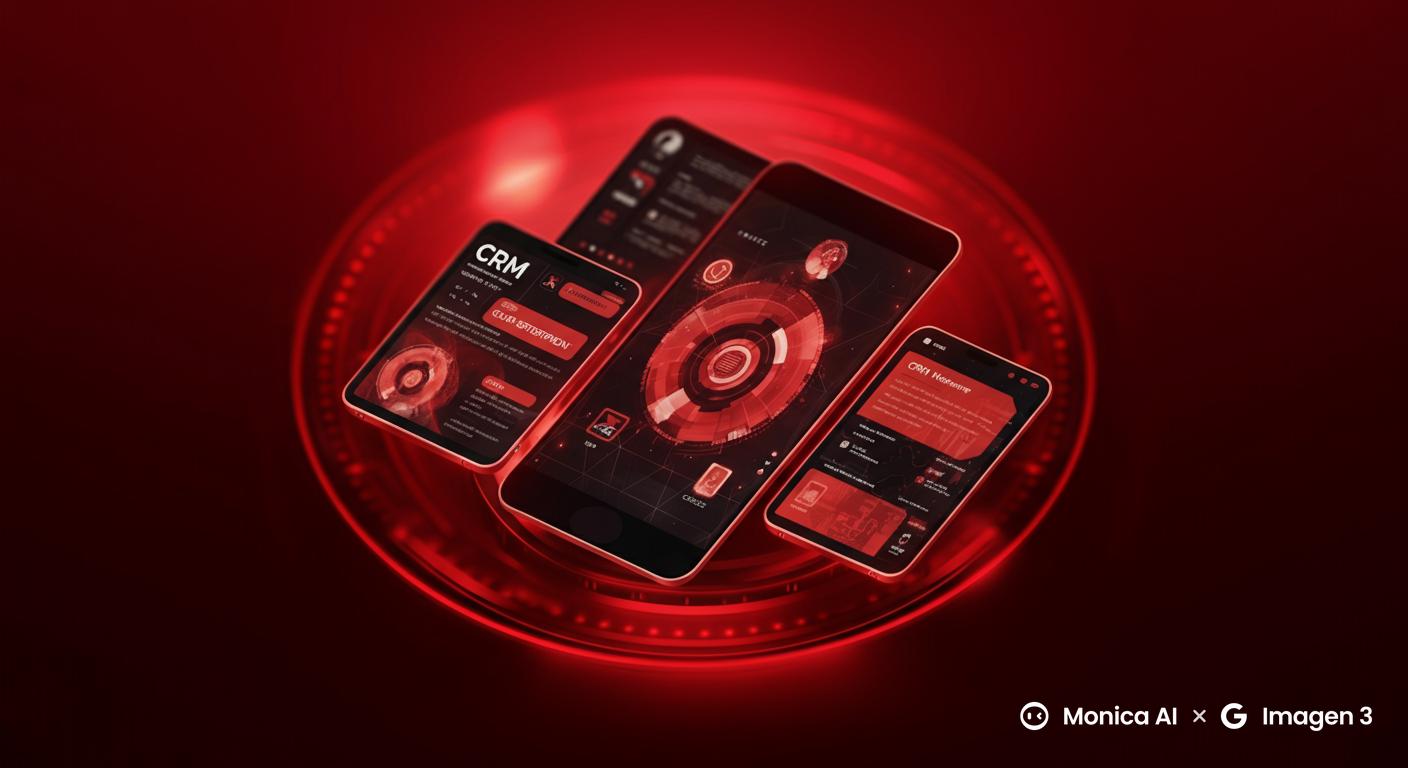In today’s hyper-competitive digital economy, customer experience is the new battleground — and at the heart of winning it is powerful, scalable, and intelligent CRM business software. For large enterprises, choosing the right CRM is more than a tech upgrade — it’s a transformation strategy.
Managing millions of customer touchpoints, hundreds of sales reps, and real-time data across departments requires robust CRM platforms that can scale globally while adapting locally.
This comprehensive guide explores:
-
🔹 The unique CRM needs of large enterprises
-
🔹 Top enterprise CRM platforms in 2025
-
🔹 Core features and system architecture
-
🔹 Key integration capabilities
-
🔹 Use cases across industries
-
🔹 Challenges and implementation strategies
-
🔹 Trends shaping enterprise CRM adoption
Let’s break down what makes a CRM truly “enterprise-grade.” 🏢📊
Table of Contents
💡 What is Enterprise CRM Software?
Enterprise CRM (Customer Relationship Management) software is a centralized platform designed to manage complex, multi-departmental, high-volume customer data and interactions across regions, product lines, and business units.
Unlike SMB-oriented CRMs, enterprise CRMs support:
-
🌍 Global operations
-
🧠 AI-driven automation and forecasting
-
🏢 Multi-departmental workflows (sales, service, marketing)
-
🔒 Advanced security and compliance (GDPR, HIPAA, SOX)
-
📈 Enterprise-level BI (business intelligence)
“A true enterprise CRM doesn’t just store data — it delivers predictive insights at scale.”
🎯 Why Large Enterprises Need Advanced CRM Software
| Need | Why It’s Critical for Enterprises |
|---|---|
| 🌐 Global Scalability | Manage teams, customers, and data centers across multiple geos |
| 🧩 Complex Workflow Support | Coordinate long sales cycles, onboarding, and after-sales service |
| 🔐 Compliance & Governance | Meet data regulations and internal policies (GDPR, HIPAA, etc.) |
| 📶 Real-time Data Sync | Ensure 100% accuracy between marketing, sales, and service data |
| 📊 Custom Reporting & BI | Drive executive decision-making with deep analytics |
| 🔌 Extensive Integration | Must plug into ERP, CPQ, finance, e-commerce, and custom apps |
🏆 Top CRM Business Software for Large Enterprises (2025 Edition)
1. Salesforce CRM (Enterprise & Unlimited Editions)
Why it dominates:
-
Cloud-native, highly modular CRM with a massive app ecosystem
-
AI-powered analytics with Salesforce Einstein
-
Lightning-fast automation builder, CPQ, and service cloud integrations
-
Native mobile and voice support
Core Features:
-
Advanced territory management
-
Role-based access and sharing
-
Custom workflow and approval processes
-
Multi-org + sandbox environments
-
API-first architecture
Industries: Tech, Financial Services, Healthcare, Retail
💵 Pricing: $150–$300/user/month (custom contracts for enterprise)
2. Microsoft Dynamics 365 CRM
Why enterprises love it:
-
Deep integration with Office 365, Azure, Teams
-
Sales, marketing, service, and field ops all in one system
-
Predictive lead scoring and AI-powered insights
-
Microsoft Dataverse for cross-app data sync
Core Features:
-
Unified contact + account hierarchy
-
Omnichannel service (chat, phone, social)
-
Advanced BI dashboards via Power BI
-
Native link to ERP (Dynamics 365 Finance & Operations)
Industries: Manufacturing, Government, Education, Logistics
💵 Pricing: From $65/user/month; enterprise licensing available
3. SAP Customer Experience (formerly SAP C/4HANA)
Why it stands out:
-
Part of the powerful SAP ecosystem
-
Ideal for B2B2C models and highly complex sales structures
-
Real-time customer behavior tracking
-
Product catalog + commerce integrations
Core Features:
-
Native ERP + supply chain integration
-
Commerce and marketing personalization
-
Consent and data privacy enforcement
-
Global identity management
Industries: FMCG, Automotive, Manufacturing, Retail
💵 Pricing: Enterprise pricing, often bundled with SAP S/4HANA
4. Oracle CX Cloud
Why it scales well:
-
Built on Oracle’s cloud infrastructure
-
Unified customer data model
-
High-volume campaign management and lead scoring
-
Native integration with Oracle ERP/SCM
Core Features:
-
Advanced workflow automation
-
Cross-channel marketing attribution
-
Industry-specific modules (Telco, Utilities, Finance)
-
Strong AI-based personalization
Industries: Finance, Telco, Pharma, Energy
💵 Pricing: Custom enterprise plans
5. Zoho CRM Plus (Enterprise Tier)
Why it’s a rising challenger:
-
All-in-one sales, marketing, and support suite
-
Affordable for large teams scaling rapidly
-
Strong automation engine with custom functions
-
Visual analytics, AI (Zia), and sentiment analysis
Core Features:
-
Multichannel communication (email, social, phone)
-
Team collaboration tools built-in
-
Blueprint-based workflow builder
-
100+ integrations with ERP, apps, APIs
Industries: SaaS, Real Estate, Education
💵 Pricing: $50/user/month (Enterprise); volume discounts available
⚙️ Core Features to Expect in Enterprise CRM
| Category | Key Features |
|---|---|
| Sales Automation | Lead routing, scoring, pipeline management |
| Marketing Integration | Campaigns, landing pages, lead nurturing, A/B testing |
| Customer Support | Ticketing, SLA tracking, chatbots, knowledge base |
| AI & Predictive | Forecasting, churn prediction, next-best-action |
| Reporting & BI | Role-based dashboards, custom KPIs, drill-down reports |
| Integration Layer | REST APIs, middleware, native & 3rd-party connectors |
| Security & Compliance | Role-based access, audit logs, data residency, encryption |
| Scalability | Handle millions of records, concurrent sessions, multi-orgs |
🔗 Integration Needs for Enterprise CRM Success
To succeed, enterprise CRMs must connect with:
| System Type | Tools Integrated |
|---|---|
| ERP | SAP, Oracle, NetSuite, Dynamics F&O |
| Marketing Automation | Adobe Campaign, Eloqua, HubSpot |
| eCommerce | Magento, Shopify Plus, Salesforce Commerce |
| Support/Service | Zendesk, Freshdesk, ServiceNow |
| Business Intelligence | Power BI, Tableau, Google Data Studio |
| Communication | Zoom, Teams, Slack, Twilio |
“The power of a CRM isn’t in the features — it’s in the ecosystem it builds.”
📈 Enterprise CRM Use Case Example
Company: GlobalTech Corp (Fortune 100 electronics manufacturer)
Problem: Disconnected sales and service teams across 12 countries
Solution: Implemented Microsoft Dynamics 365 CRM
-
Unified sales and support data
-
Enabled real-time lead scoring using Power BI
-
Created regional dashboards with role-based permissions
-
Integrated directly with SAP for pricing and inventory sync
Results:
-
Reduced lead response time by 53%
-
Increased cross-selling revenue by 31%
-
Improved customer satisfaction score (CSAT) by 22%
❌ Common Enterprise CRM Implementation Challenges
-
Poor Stakeholder Alignment
→ Result: Inconsistent goals and resistance -
Underestimating Data Complexity
→ Result: Bad migration, dirty records, integration issues -
Inadequate User Training
→ Result: Low adoption, high frustration -
Over-Customization
→ Result: Slower updates, higher technical debt -
Ignoring Change Management
→ Result: CRM seen as “another tool” instead of a core strategy
🧠 Future Trends in Enterprise CRM (2025 & Beyond)
| Trend | Description |
|---|---|
| 🧠 AI-First CRM | Predictive analytics, intelligent automation, auto-tasking |
| 🔐 Privacy-First Architecture | Embedded data residency, consent tracking, compliance layers |
| 🧬 Unified CX Platforms | CRM + CDP + DXP + Support in one ecosystem |
| 🛰️ Voice & Conversational CRM | Voice-powered input, chat-led interfaces |
| 🧩 Modular CRM Components | Microservice CRMs deployable across business units independently |
🎯 Final Thoughts: Choosing the Right CRM for Enterprise Growth
Choosing the right CRM business software for a large enterprise is not about checking feature lists — it’s about choosing a strategic data platform that becomes the central nervous system of your organization.
Here’s the decision framework:
-
✅ Need extreme customization and global scalability? → Salesforce
-
✅ Heavily integrated with Microsoft stack? → Dynamics 365
-
✅ SAP ERP or supply chain backend? → SAP Customer Experience
-
✅ Complex B2B campaigns and customer service? → Oracle CX Cloud
-
✅ Fast-growing, cost-conscious scale-up? → Zoho CRM Plus
“A well-implemented enterprise CRM is not just a tool — it’s a growth engine.”




